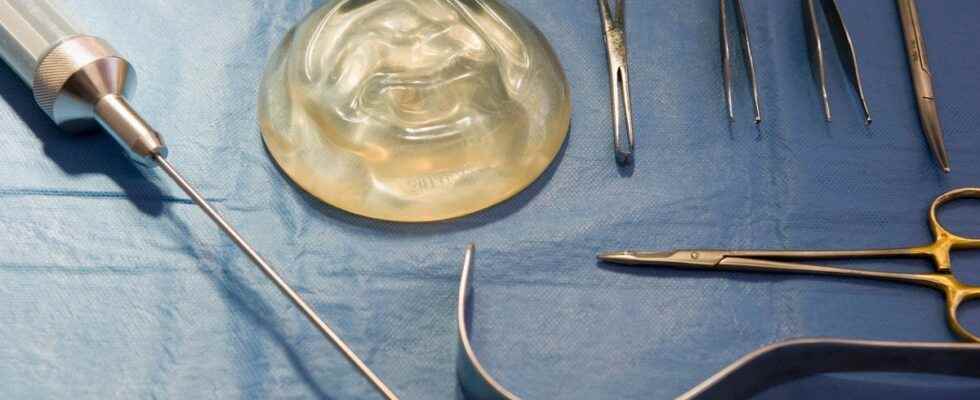Published on
Updated
Reading 2 mins.
The US Food and Drug Administration regularly monitors and informs the public of the cancer risks associated with breast implants. It has just published a new inventory on the issue on September 8th.
The United States Food and Drug Administration (FDA) informs the public of reports of cancers, including squamous cell carcinoma and various lymphomas from the scar tissue (capsule) that forms around breast implants.
Breast implants, what are they?
Breast implants are medical devices that are implanted under the breast tissue or chest muscle to increase breast size, to replace breast tissue that has been removed due to cancer or trauma or has failed to developed properly due to a severe breast abnormality.
They are also used in revision surgeries, which aim to correct or improve the outcome of an original surgery.
There are two different types: those filled with saline solution and those filled with silicone gel. Breast implants are not lifelong devices. The longer you have had your implants, the more likely you are to have them removed or replaced.
Two different types of cancer
In this press release, the FDA specifies that the various lymphomas reported are not the same as those described previously, which were called “anaplastic large cell lymphoma associated with breast implants (BIA-ALCL)”.
In this press release, the FDA speaks this time of squamous cell carcinomas, of which it currently lists less than 20 cases, and of lymphomas in the capsule around the breast implant, with less than 30 cases at present.
Lack of knowledge of incidence and risk factors
Although the American agency explains that it has an in-depth follow-up on the matter, it also specifies “that currently the incidence rate and risk factors for squamous cell carcinomas and various lymphomas in the capsule around breast implants are unknown”. She also recalls that “in some cases, people have been diagnosed after years of wearing breast implants”.
Clinical signs to watch out for
The FDA therefore urges women with implants to watch for any unusual symptoms, such as “swelling, pain, bumps or skin changes”. It also makes other recommendations:
- If you are considering or have breast implants, educate yourself about their risks and benefits;
- If you have breast implants, you don’t need to change your routine medical care or aftercare.
- Be aware that cases of squamous cell cancer and lymphoma in the capsule around the breast implant have been reported;
- Monitor your breast implants for as long as you wear them. If you notice any abnormal changes in your breasts or implants, talk to your surgeon or the manufacturer promptly;
- If you do not have symptoms, the FDA does not recommend breast implant removal.
If the withdrawal is not systematically recommended, the FDA does however ask all patients with a problem to file a report on the MedWatch site relating to the safety of FDA medical products for health professionals, patients and consumers. The aim is to “provide information that contributes to improving patient safety”.
